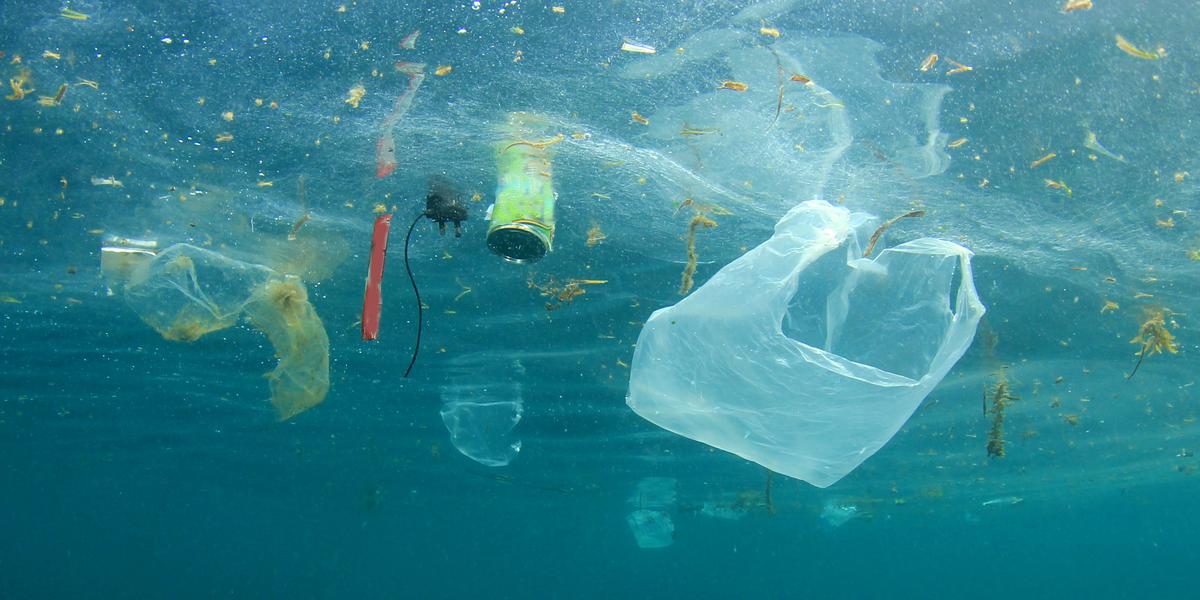 The chilling sight of a beached whale has come to light in the town of Mabini, Philippines.
The chilling sight of a beached whale has come to light in the town of Mabini, Philippines.
The Cuvier’s beaked whale, which weighed 1,100 pounds and measured 15 feet, was filled with 88 pounds of bags, nylon ropes, and other disposable plastic products.
In some parts of the young male’s stomach, plastic had calcified, meaning that it became rock solid. This is the largest amount of plastic to be ever found in a marine mammal’s stomach.
The death of this Cuvier’s beaked whale reminds the world of the fatalities of plastic pollution in the world’s oceans.
According to researchers, more than 8.3 million tons of plastic have been produced since the 1950s, 60% of which has come to landfills and the natural environment. If current trends continue, about 2 billion tons of plastic waste will have accumulated by 2050.
Why Whales Ingest Plastics
 Toothed whales mainly rely on their echolocation skills (listening to echoes and sounds) to navigate their way through the ocean. When plastic bags expand underwater, they can resemble squid and other typical whale prey.
Toothed whales mainly rely on their echolocation skills (listening to echoes and sounds) to navigate their way through the ocean. When plastic bags expand underwater, they can resemble squid and other typical whale prey.
When whales swallow plastic, their digestive system is unable to break down the material, leaving it to occupy their stomachs for an extremely long time.
This buildup of plastic makes whales feel full, so they lose important nutrients and energy from their usual meals. The whales become lethargic and more vulnerable to predators. The plastic also prevents food from entering the intestine, and it can rip into the creatures’ organs.
How Can We Combat Plastic Pollution?
The European Union (EU) has decided to ban single-use plastics starting from 2021. In Africa, 25 countries have followed suit in banning the production and use of plastic.
/https://public-media.si-cdn.com/filer/1e/28/1e286097-16fb-4598-97a6-2a33e4fb53f7/34208046_1991059334300535_5815294343354777600_n.jpg) Other countries have taken a more innovative approach and are in the process of creating biodegradable (able to decompose and not stay in the environment) plastic substitutes.
Other countries have taken a more innovative approach and are in the process of creating biodegradable (able to decompose and not stay in the environment) plastic substitutes.
In the United States, a brewery has invented biodegradable six-pack rings that are made of barley and wheat and can be safely consumed by animals. In India, edible cutlery (utensils like spoons and forks) has been made with sorghum, rice, and wheat. In Japan, scientists have even discovered bugs that can eat unwanted plastic!
We, too, can play a part in the war against plastic pollution. One step is to reduce the consumption of single-use plastics and look for alternatives. Instead of eating with single-use plastic forks, we should use utensils made from metal, bamboo, or wood. Instead of drinking from plastic cups, use those made from glass or metal.
Another step is to recycle and reuse plastic. Instead of tossing out old plastic toys, donate them to those who would appreciate them. This year’s World Environment Day is June 5, you can join the Beat Plastic Pollution movement!
It is up to us to make a stand against plastic pollution, so start making a change by reducing your plastic use. If we all pitch in, the tide of plastic can be reversed and whale beachings will be a phenomenon of the past.
Sources: National Geographic, New York Times, United Nations Environment Programme, baleinesendirect.org









